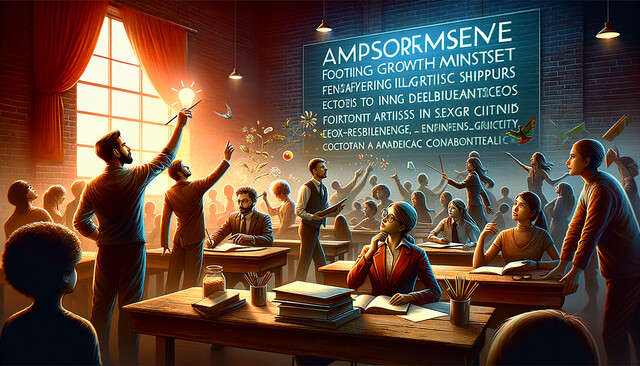Online Class: Introduction to Instructional Design

no certificate
with CEU Certificate*
-
15Lessons
-
22Exams &
Assignments -
7Hours
average time -
0.7CEUs
Course Description
In a world where the boundaries of education are constantly being redefined, "Introduction to Instructional Design" stands as your portal to transforming the way learning is crafted and consumed. Imagine a realm where every educational experience is perfectly tailored, not just to educate, but to inspire, engage, and transform learners into lifelong seekers of knowledge. This course doesn't just teach instructional design; it reimagines it, giving you the tools to turn educational theories into practice and ultimately change lives.
Begin your journey by learning how technology has revolutionized learning design from its earliest iterations to the ingenious innovations of today. You'll uncover secrets from the evolution of instructional strategies that have shaped entire generations. Picture a transformation from the rote military training programs of the past to dynamic, interactive, and personalized learning experiences that adapt just for you. This course offers you a front-row seat to the historical shifts in education technology and gives you the power to shape what comes next.
In this course, you'll explore the delicate dance between traditional pedagogy and the digital frontier, where chalkboards meet AI-powered learning systems. You'll understand the urgency and beauty of democratizing education, ensuring that intellectual growth is accessible to every corner of the globe, regardless of language, culture, or technological access. Feel the satisfaction that comes from crafting learning environments as diverse as the students they serve.
With a keen understanding of behaviorism, cognitivism, and constructivism, you'll discover how to weave these theories into a modern pedagogical tapestry that doesn't just acknowledge learner diversity�it celebrates it. You'll harness the might of AI to tailor learning experiences that echo each individual's unique way of absorbing and processing information, even before they know it themselves.
Strategic needs assessment becomes your foundational tool, one that underpins every educational decision. Imagine the confidence you'll gain as you uncover hidden gaps in knowledge and seamlessly bridge them with tailored learning strategies. As a master of needs assessment, you'll transform educational challenges into opportunities for growth and success, fostering environments where all learners can thrive.
Learner-centric approaches become your guiding principle, allowing you to craft environments that resonate with every student's need and preference. No longer will education be a one-size-fits-all endeavor; your designs will be as dynamic and adaptable as the students who engage with them. You'll work shoulder to shoulder with subject matter experts, ensuring every learning objective is meaningful, meaningful, and transformative.
Technology is your ally, enhancing every educational encounter with immersive experiences. Imagine students virtually wandering through a historical event with the same vivid clarity as they would perceive a game, or solving complex problems in a simulated environment enriched by augmented reality. Under your guidance, the line between learning and play blurs, making education a deeply engaging adventure.
Assessment is redefined as well in your hands; no longer a mere checkbox at the end of a lesson, but an ongoing dialogue between teacher and student. Your expertise in designing assessments is agile and responsive, ensuring that every step of the learning journey is tightly aligned to desired outcomes, fortifying understanding along the way.
In this course, the project management strategies traditionally reserved for busy boardrooms find a new home in education. You will streamline instructional design projects, aligning objectives with methods, and guiding teachers anew in creating environments that engage and excite.
In this ever-connected age, learning is no longer restricted to the four walls of a classroom. Master the principles of online design, constructing lessons that resonate with the same impact and depth as their physical counterparts. Your designs will break barriers, ensuring that every learner, regardless of circumstance, has access to the knowledge and opportunities they deserve.
Explore the future where AI and AR interlace the tapestry of education, revealing insights from student data and weaving them into the fabric of prediction and personalization. You'll learn how to anticipate the needs of students, even before they arise, and cater to them with a precision that ensures success and growth.
Welcome to "Introduction to Instructional Design". By enrolling in this revolutionary course, you're not just shaping your own future; you're shaping the future of education. Equip yourself with the tools to become a changemaker, and let's make learning an experience worth savoring. The world of education is evolving�dive in and make your mark today.
- Completely Online
- Self-Paced
- 6 Months to Complete
- 24/7 Availability
- Start Anytime
- PC & Mac Compatible
- Android & iOS Friendly
- Accredited CEUs

Course Lessons
Lesson 1. How Technology Transformed Learning Design
 Review Practice Worksheet: Lesson-1-WorkSheet-16304.pdf
Review Practice Worksheet: Lesson-1-WorkSheet-16304.pdf Lesson discussions: Reasons for Taking this Course
Lesson discussions: Reasons for Taking this Course Assessment: Lesson 1 Review Exam
Assessment: Lesson 1 Review Exam
Lesson 2. Modern Pedagogy: Bridging Traditional and Digital Worlds
 Review Practice Worksheet: Lesson-2-HomeWork-16307.pdf
Review Practice Worksheet: Lesson-2-HomeWork-16307.pdf Assessment: Lesson 2 Review Exam
Assessment: Lesson 2 Review Exam
Lesson 3. Redefining Education: The Influence of Learning Theories on Modern Practices
 Review Practice Worksheet: Lesson-3-Downloadable-16309.pdf
Review Practice Worksheet: Lesson-3-Downloadable-16309.pdf Complete: Lesson 3 Activity
Complete: Lesson 3 Activity Assessment: Lesson 3 Review Exam
Assessment: Lesson 3 Review Exam
Lesson 4. Empowering Instructional Design with Strategic Needs Assessment
 Review Practice Worksheet: Lesson-4-HomeWork-16313.pdf
Review Practice Worksheet: Lesson-4-HomeWork-16313.pdf Assessment: Lesson 4 Review Exam
Assessment: Lesson 4 Review Exam
Lesson 5. Learner-Centric Approaches: Tailoring Education for Maximum Impact
 Review Practice Worksheet: Lesson-5-Activity-16316.pdf
Review Practice Worksheet: Lesson-5-Activity-16316.pdf Assessment: Lesson 5 Review Exam
Assessment: Lesson 5 Review Exam
Lesson 6. Learning Objectives: Key Elements for Success
 Review Practice Worksheet: Lesson-6-WorkSheet-16319.pdf
Review Practice Worksheet: Lesson-6-WorkSheet-16319.pdf Complete: Lesson 6 Activity
Complete: Lesson 6 Activity Assessment: Lesson 6 Review Exam
Assessment: Lesson 6 Review Exam
Lesson 7. Designing Holistic Learning Experiences
 Review Practice Worksheet: Lesson-7-Activity-16322.pdf
Review Practice Worksheet: Lesson-7-Activity-16322.pdf Assessment: Lesson 7 Review Exam
Assessment: Lesson 7 Review Exam
Lesson 8. Mastering Multimedia in Instructional Design: Key Principles and Practices
 Review Practice Worksheet: Lesson-8-HomeWork-16325.pdf
Review Practice Worksheet: Lesson-8-HomeWork-16325.pdf Complete: Lesson 8 Activity
Complete: Lesson 8 Activity Assessment: Lesson 8 Review Exam
Assessment: Lesson 8 Review Exam
Lesson 9. Mastering Assessment Design: Enhancing Learning Outcomes through Formative and Summative Evaluations
 Review Practice Worksheet: Lesson-9-HomeWork-16328.pdf
Review Practice Worksheet: Lesson-9-HomeWork-16328.pdf Complete: Lesson 9 Activity
Complete: Lesson 9 Activity Assessment: Lesson 9 Review Exam
Assessment: Lesson 9 Review Exam
Lesson 10. Crafting Inclusive Learning: Embracing Diverse Styles for Educational Success
 Review Practice Worksheet: Lesson-10-HomeWork-16331.pdf
Review Practice Worksheet: Lesson-10-HomeWork-16331.pdf Complete: Lesson 10 Activity
Complete: Lesson 10 Activity Assessment: Lesson 10 Review Exam
Assessment: Lesson 10 Review Exam
Lesson 11. Gamification and AI: Revolutionizing Educational Engagement
 Review Practice Worksheet: Lesson-11-Downloadable-16335.pdf
Review Practice Worksheet: Lesson-11-Downloadable-16335.pdf Assessment: Lesson 11 Review Exam
Assessment: Lesson 11 Review Exam
Lesson 12. Instructional Design Project Management: Streamlined Success
 Review Practice Worksheet: Lesson-12-WordSearch-16339.pdf
Review Practice Worksheet: Lesson-12-WordSearch-16339.pdf Assessment: Lesson 12 Review Exam
Assessment: Lesson 12 Review Exam
Lesson 13. Mastering Online Learning Design: Principles and Practices
 Review Practice Worksheet: Lesson-13-Activity-16342.pdf
Review Practice Worksheet: Lesson-13-Activity-16342.pdf Assessment: Lesson 13 Review Exam
Assessment: Lesson 13 Review Exam
Lesson 14. Design Excellence in Education
 Review Practice Worksheet: Lesson-14-HomeWork-16345.pdf
Review Practice Worksheet: Lesson-14-HomeWork-16345.pdf Complete: Lesson 14 Activity
Complete: Lesson 14 Activity Assessment: Lesson 14 Review Exam
Assessment: Lesson 14 Review Exam
Lesson 15. AI and AR: Transforming the Future of Education
 Review Practice Worksheet: Lesson-15-WordSearch-16348.pdf
Review Practice Worksheet: Lesson-15-WordSearch-16348.pdf Lesson discussions: End of Course Poll; Course Comments
Lesson discussions: End of Course Poll; Course Comments Complete: Lesson 15 Activity
Complete: Lesson 15 Activity Assessment: Lesson 15 Review Exam
Assessment: Lesson 15 Review Exam
Learning Outcomes
- Demonstrate the ability to apply cognitive and constructivist theories to create learner-centered, interactive educational experiences that incorporate technology and adaptive learning methods.
- Define the historical milestones of instructional design from the early 20th century to present, emphasizing key developments in theories and technologies.
- Define how technological advancements have transformed educational media from traditional tools like chalkboards to modern digital platforms, enhancing student engagement and personalized learning experiences.
- Demonstrate understanding of AI's role in modern education by identifying three ways it personalizes learning through data analysis and adaptive content delivery.
- Describe how behaviorist principles can be applied to instructional design to effectively enhance learner engagement and motivation through reinforcement strategies.
- Explain the impact of cognitive load theory on instructional design and how organizing information can optimize learning efficiency by reducing extraneous cognitive load.
- Define the term 'needs assessment' within instructional design and explain its critical role in tailoring educational experiences.
- Identify various data collection methods used in needs assessments, and demonstrate their application in pinpointing learner gaps and informing instructional design strategies.
- Define learner needs and preferences through Learning Needs Analysis, surveys, and observations to tailor educational content effectively and address gaps.
- Identify diverse learning preferences using models like VARK to incorporate varied instructional strategies that enhance engagement and retention across different learner profiles.
- Define specific, measurable learning objectives using Bloom's Taxonomy to ensure alignment with educational goals and accountability for both instructors and students.
- Demonstrate the ability to revise learning objectives based on feedback, analytics, and industry trends to maintain educational relevance and effectiveness.
- Recognize the significance of diverse instructional strategies in optimizing learning outcomes and accommodating different learning styles.
- Demonstrate mastery of lesson content at levels of 70% or higher.
Additional Course Information

- Document Your Lifelong Learning Achievements
- Earn an Official Certificate Documenting Course Hours and CEUs
- Verify Your Certificate with a Unique Serial Number Online
- View and Share Your Certificate Online or Download/Print as PDF
- Display Your Certificate on Your Resume and Promote Your Achievements Using Social Media

Choose Your Subscription Plan
No Certificate / No CEUs
This course only
| Includes certificate | X |
| Includes CEUs | X |
| Self-paced |

|
| Instructor support |

|
| Time to complete | 6 months |
| No. of courses | 1 course |
Certificate & CEUs
This course only
| Includes certificate |

|
| Includes CEUs |

|
| Self-paced |

|
| Instructor support |

|
| Time to complete | 6 months |
| No. of courses | 1 course |
Certificates & CEUs
Includes all 600+ courses
| Includes certificate |

|
| Includes CEUs |

|
| Self-paced |

|
| Instructor support |

|
| Time to complete | 12 Months |
| No. of courses | 600+ |
Certificates & CEUs
Includes all 600+ courses
| Includes certificate |

|
| Includes CEUs |

|
| Self-paced |

|
| Instructor support |

|
| Time to complete | 24 Months |
| No. of courses | 600+ |
Related Courses
-
 7 hours
0.7 CEUs
Understanding Adolescent Development
+ More Info
7 hours
0.7 CEUs
Understanding Adolescent Development
+ More Info
-
 4 hours
0.4 CEUs
Designing Experiential Learning Opportunities
+ More Info
4 hours
0.4 CEUs
Designing Experiential Learning Opportunities
+ More Info
-
 4 hours
0.4 CEUs
Implementing Project-Based Learning
+ More Info
4 hours
0.4 CEUs
Implementing Project-Based Learning
+ More Info
-
 4 hours
0.4 CEUs
Innovative Curriculum Design for the 21st Century
+ More Info
4 hours
0.4 CEUs
Innovative Curriculum Design for the 21st Century
+ More Info
-
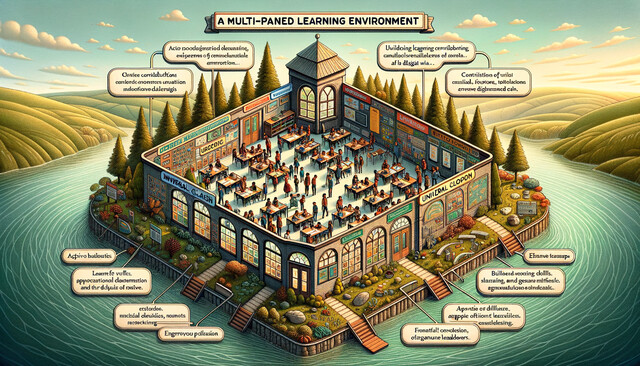 6 hours
0.6 CEUs
Building Effective Parent-Teacher Partnerships
+ More Info
6 hours
0.6 CEUs
Building Effective Parent-Teacher Partnerships
+ More Info
-
 4 hours
0.4 CEUs
The Role of Feedback in Student Learning
+ More Info
4 hours
0.4 CEUs
The Role of Feedback in Student Learning
+ More Info
-
 6 hours
0.6 CEUs
Creating Learner-Centered Classrooms
+ More Info
6 hours
0.6 CEUs
Creating Learner-Centered Classrooms
+ More Info
-
 7 hours
0.7 CEUs
Strategies for Closing the Achievement Gap
+ More Info
7 hours
0.7 CEUs
Strategies for Closing the Achievement Gap
+ More Info
-
 5 hours
0.5 CEUs
Using Research to Inform Teaching Practices
+ More Info
5 hours
0.5 CEUs
Using Research to Inform Teaching Practices
+ More Info
-
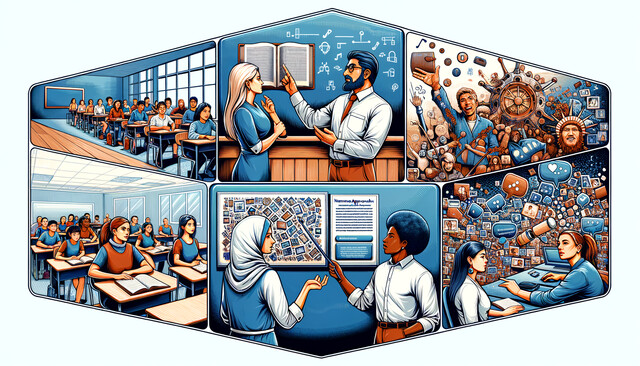 6 hours
0.6 CEUs
Narrative Approaches in Education
+ More Info
6 hours
0.6 CEUs
Narrative Approaches in Education
+ More Info
-
 7 hours
0.7 CEUs
Leadership in Educational Settings
+ More Info
7 hours
0.7 CEUs
Leadership in Educational Settings
+ More Info
-
 7 hours
0.7 CEUs
Blended Learning Models in Schools
+ More Info
7 hours
0.7 CEUs
Blended Learning Models in Schools
+ More Info
-
 4 hours
0.4 CEUs
Gamification in Education
+ More Info
4 hours
0.4 CEUs
Gamification in Education
+ More Info
-
 5 hours
0.5 CEUs
Advanced Pedagogical Techniques
+ More Info
5 hours
0.5 CEUs
Advanced Pedagogical Techniques
+ More Info
-
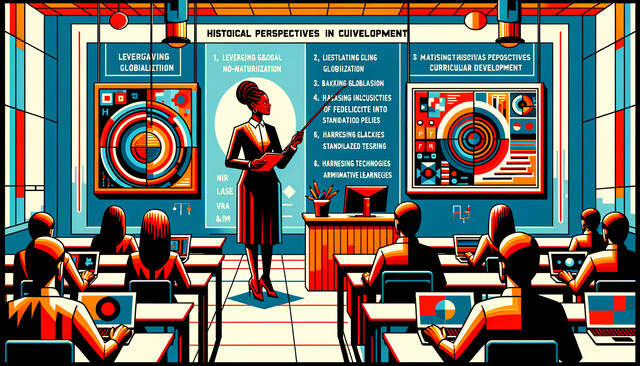 3 hours
0.3 CEUs
Historical Perspectives in Curriculum Development
+ More Info
3 hours
0.3 CEUs
Historical Perspectives in Curriculum Development
+ More Info
-
 3 hours
0.3 CEUs
Effective Teaching Strategies for Diverse Classrooms
+ More Info
3 hours
0.3 CEUs
Effective Teaching Strategies for Diverse Classrooms
+ More Info
-
 6 hours
0.6 CEUs
Classroom Management for New Teachers
+ More Info
6 hours
0.6 CEUs
Classroom Management for New Teachers
+ More Info
-
 4 hours
0.4 CEUs
The Use of Analytics in Education
+ More Info
4 hours
0.4 CEUs
The Use of Analytics in Education
+ More Info
-
 5 hours
0.5 CEUs
Creating a Safe and Supportive Learning Environment
+ More Info
5 hours
0.5 CEUs
Creating a Safe and Supportive Learning Environment
+ More Info
-
 7 hours
0.7 CEUs
Ethical Decision-Making for Educators
+ More Info
7 hours
0.7 CEUs
Ethical Decision-Making for Educators
+ More Info
-
 6 hours
0.6 CEUs
Supporting Students with Special Needs
+ More Info
6 hours
0.6 CEUs
Supporting Students with Special Needs
+ More Info
-
 3 hours
0.3 CEUs
Collaborative Teaching Approaches
+ More Info
3 hours
0.3 CEUs
Collaborative Teaching Approaches
+ More Info
-
 4 hours
0.4 CEUs
Principles of Adult Learning Theory
+ More Info
4 hours
0.4 CEUs
Principles of Adult Learning Theory
+ More Info
-
 4 hours
0.4 CEUs
Creating a Culture of Collaboration
+ More Info
4 hours
0.4 CEUs
Creating a Culture of Collaboration
+ More Info
-
 5 hours
0.5 CEUs
Utilizing Data to Drive Instruction
+ More Info
5 hours
0.5 CEUs
Utilizing Data to Drive Instruction
+ More Info
-
 5 hours
0.5 CEUs
STEAM: Integrating the Arts with STEM
+ More Info
5 hours
0.5 CEUs
STEAM: Integrating the Arts with STEM
+ More Info
-
 6 hours
0.6 CEUs
Professional Learning Communities Development
+ More Info
6 hours
0.6 CEUs
Professional Learning Communities Development
+ More Info
-
 5 hours
0.5 CEUs
Empowering Student Voice through Leadership
+ More Info
5 hours
0.5 CEUs
Empowering Student Voice through Leadership
+ More Info
-
 5 hours
0.5 CEUs
Building Inclusive Classrooms
+ More Info
5 hours
0.5 CEUs
Building Inclusive Classrooms
+ More Info
-
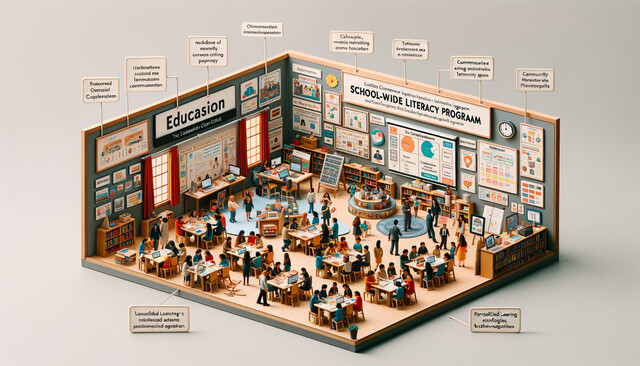 5 hours
0.5 CEUs
Implementing School-Wide Literacy Programs
+ More Info
5 hours
0.5 CEUs
Implementing School-Wide Literacy Programs
+ More Info
-
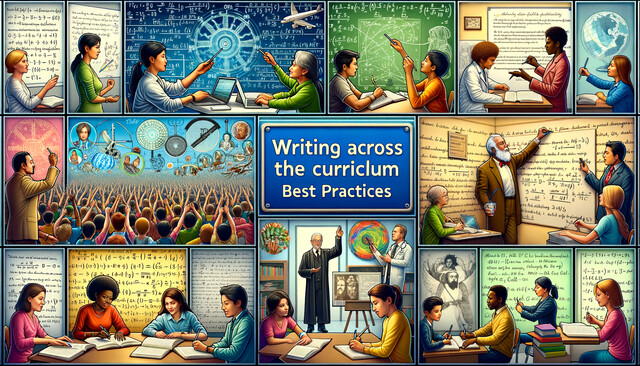 3 hours
0.3 CEUs
Writing Across the Curriculum: Best Practices
+ More Info
3 hours
0.3 CEUs
Writing Across the Curriculum: Best Practices
+ More Info
-
 7 hours
0.7 CEUs
Integrating Arts into the Curriculum
+ More Info
7 hours
0.7 CEUs
Integrating Arts into the Curriculum
+ More Info
-
 3 hours
0.3 CEUs
Preparing Students for Careers of the Future
+ More Info
3 hours
0.3 CEUs
Preparing Students for Careers of the Future
+ More Info
-
 4 hours
0.4 CEUs
Facilitating Online and Hybrid Learning
+ More Info
4 hours
0.4 CEUs
Facilitating Online and Hybrid Learning
+ More Info
-
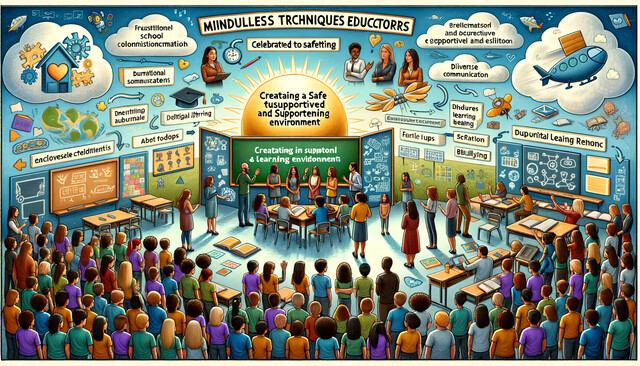 5 hours
0.5 CEUs
Mindfulness Techniques for Educators
+ More Info
5 hours
0.5 CEUs
Mindfulness Techniques for Educators
+ More Info
-
 6 hours
0.6 CEUs
Fostering a Growth Mindset in Students
+ More Info
6 hours
0.6 CEUs
Fostering a Growth Mindset in Students
+ More Info
-
 5 hours
0.5 CEUs
Maximizing Learning with Flipped Classrooms
+ More Info
5 hours
0.5 CEUs
Maximizing Learning with Flipped Classrooms
+ More Info
-
 3 hours
0.3 CEUs
Improving Teacher Retention and Sustainability
+ More Info
3 hours
0.3 CEUs
Improving Teacher Retention and Sustainability
+ More Info


